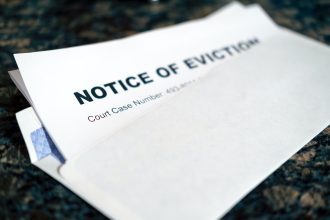Technology shifts are transforming our interaction with legal forms. We’re making it faster, safer, and easier. A major innovation is electronic recording, or e-recording services, It’s not only modernizing legal document management but also guiding us to a future where transactions are a breeze. Here, we’ll look at how crucial these services are to reshaping the entire legal documentation sector.
Understanding E-Recording Services
E-recording is when we submit documents electronically to the right government agency to be recorded for public records. In the past, we had to deliver legal documents by hand to the county recorder’s office, which was slow and could lead to mistakes. Digital document sharing is increasing with e-recording. This method makes processes faster and reduces errors.
Advantages of E-Recording Services
The benefits of e-recording are many. Fast service? Yes, indeed! E-recording delivers documents quicker than conventional ways. No more delays of days or weeks. Now, it is about hours or even minutes. Transaction volume has increased substantially.
Accuracy and Reliability
E-recording curbs the common errors of manual data entry. Selling documents electronically minimizes problems such as bad handwriting or misplaced information. It boosts the accuracy and reliability of recorded documents, reducing future legal issues.
Savings Money
Traditional methods could be costly, with charges for printing, mailing, and couriers. E-recording cuts these costs. Plus, the quicker processing time saves money for everyone involved.
Easy Access
You can quickly access e-recorded documents online. It makes things more transparent and helps with carrying out due diligence for things like house purchases, mortgage refinancing, or other legal matters.
Keeping Things Safe
E-recording platforms have strong security measures to keep sensitive information safe. Encrypted techniques and authentication protocols make sure everything gets transmitted safely and no unauthorized person can mess with it.
The Role of Technology in E-Recording
More people than ever before are using e-recording services because of the technological advances that allow us to digitize and automate complicated procedures. The main technological bits and pieces that power e-recording include:
Digital signatures
They’re important for e-recording. They confirm who is signing and keep the details of documents secure. Platforms for electronic signatures use encryption algorithms to come up with unique signatures that are legally binding and show if anyone’s tried to tamper with them.
Data Storage
E-Recording banks on cloud platforms for storage and management. The cloud allows real-time access and document editing from any location, simplifying teamwork.
Blockchain
Some e-recording platforms apply blockchain technology to create resilient records of transactions. Blockchain ensures authentic and transparent documents by decentralizing data storage and offering an immutable ledger.
Artificial Intelligence (AI) and Machine Learning
AI-powered algorithms can analyze large volumes of data to identify patterns and detect anomalies. In the context of e-recording, AI can streamline document review processes, flag potential errors, and improve overall efficiency.
The Future of Documents
E-recording service
Services keep changing, and as they do, they’re set to change the future of how we deal with documents. Here are some of the ways they’ll do this:
Interoperability
More and more e-recording platforms talk to each other, linking seamlessly with other legal software systems. This ability to share data across different platforms cuts down on wasted efforts and boosts efficiency
Mobile Access
More people are using mobile devices, so e-recording apps are popping up. Anytime, anywhere, you can submit and get documents on the run. No drama. No need to fear regulations: E-recording services match up with legal and business standards. They even offer features for compliance, like encrypting data and audit trails. Talk about peace of mind!
Smart Contracts
A revolution in legal agreements is the use of smart contract technology. Built on blockchain platforms, these contracts can self-execute, eliminating middlemen and saving costs.
Regulatory Compliance
E-recording services adapt to meet regulatory requirements and industry standards. They include compliance features such as audit trails and data encryption. These platforms assure parties that their transactions follow legal and regulatory guidelines.
Conclusion
So, let’s wrap it up. Document management’s future It’s all about e-recording’s rise. These services could change the game—think faster, safer, and clearer transactions. As legal norms change, e-recording platforms are gearing up to meet them. Choosing e-recording isn’t just about keeping up; it’s for smooth online transactions’ sake.






